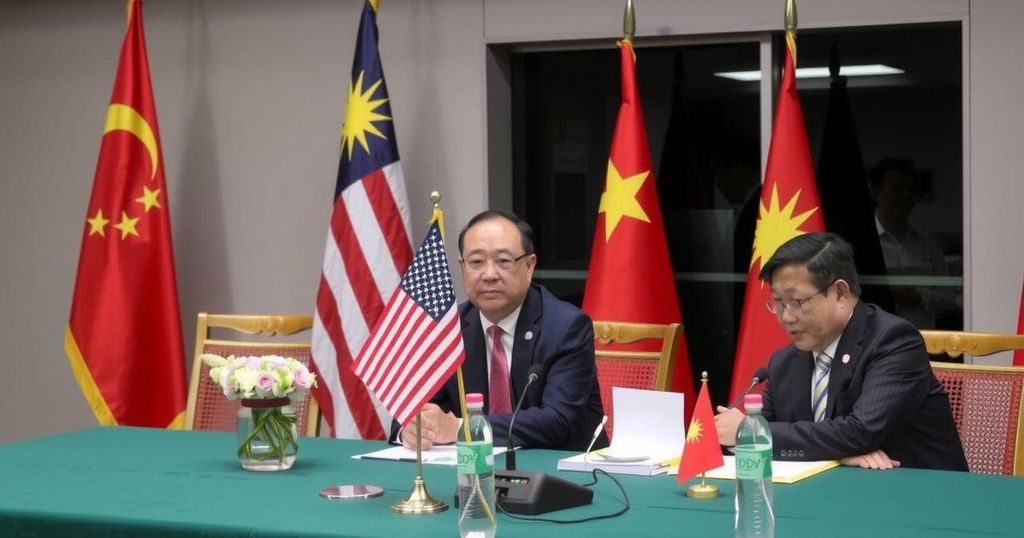Navigating Challenges: Malaysia’s ASEAN Leadership Under Anwar Ibrahim
Malaysia’s Prime Minister Anwar Ibrahim now leads ASEAN at a crucial time characterized by global trade tensions and regional crises. Despite ASEAN’s significant economic stature, its consensus-based decision-making could hinder its effectiveness. Anwar’s past experiences and diplomatic outreach signal a strong effort to tackle the pressing challenges ahead during Malaysia’s chairmanship.
As Malaysia assumes the ASEAN chair in a period marked by economic tension and political uncertainty, the nation’s Prime Minister, Anwar Ibrahim, must leverage his diplomatic skills to navigate a complex international landscape. Anwar, who has experienced significant political trials, is intent on enhancing Malaysia’s global standing since taking office in late 2022. His extensive diplomatic efforts encompass visits to major world powers, reflecting a focused strategy to address pressing economic and security challenges facing the region.
The ASEAN bloc, comprising ten Southeast Asian nations, constitutes the fifth-largest economy globally, boasting a combined GDP of approximately USD 3.6 trillion and a projected growth rate of 4.5 percent for 2024. However, ASEAN’s consensus-driven framework often hampers decisive action, leading to claims that it operates more as a “talking shop”. As Malaysia leads this year, observers are keenly interested in how Anwar will respond to a variety of urgent issues that demand attention and action.
Scholar Thomas Daniel from the Institute of Strategic and International Studies has highlighted that leaders will be evaluated based on their ability to effectively handle controversial matters. In the coming year, Malaysia is predicted to face numerous challenges, presenting both opportunities and risks as it steers ASEAN amidst rising global trade tensions and regional crises.
The article discusses Malaysia’s upcoming tenure as chair of the Association of Southeast Asian Nations (ASEAN) under the leadership of Prime Minister Anwar Ibrahim. It explores the political dynamics within ASEAN, emphasizing the organization’s potential and limitations in decision-making due to its consensus-driven nature. The economic significance of ASEAN is also underlined, portraying its critical role in the global economic system at a time of increased geopolitical tensions.
In conclusion, Malaysia’s presidency of ASEAN during a tumultuous period poses significant challenges and opportunities for Prime Minister Anwar Ibrahim. His diplomatic engagements highlight a commitment to revitalizing Malaysia’s role in international relations. Nevertheless, the effectiveness of ASEAN in confronting pressing issues will largely depend on the ability of its leaders to act decisively, as the scrutiny on Malaysia’s handling of these matters intensifies.
Original Source: www.scmp.com




Post Comment